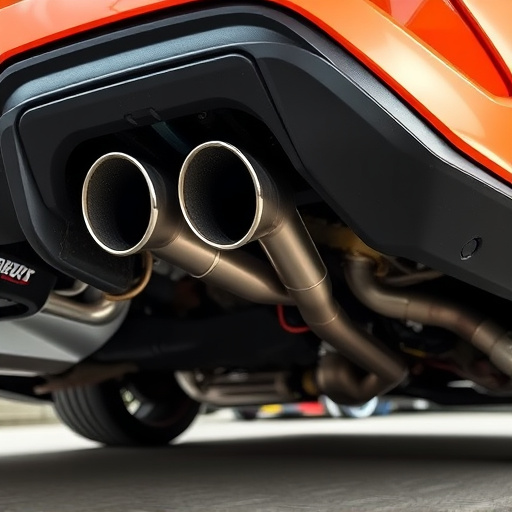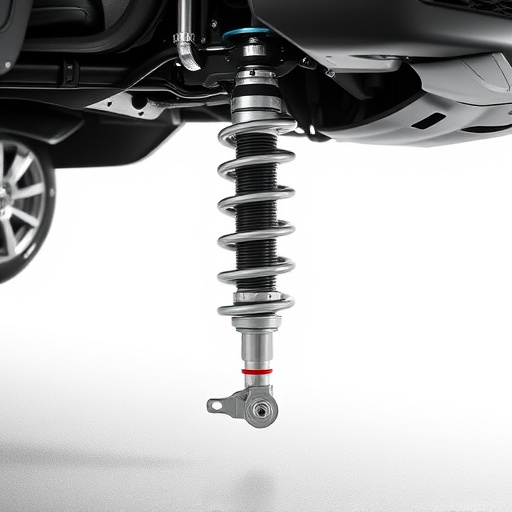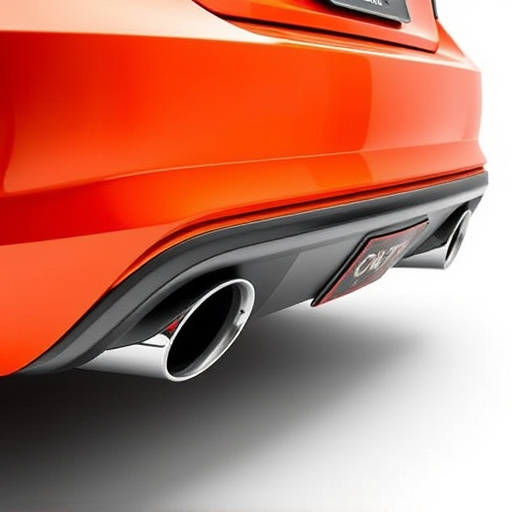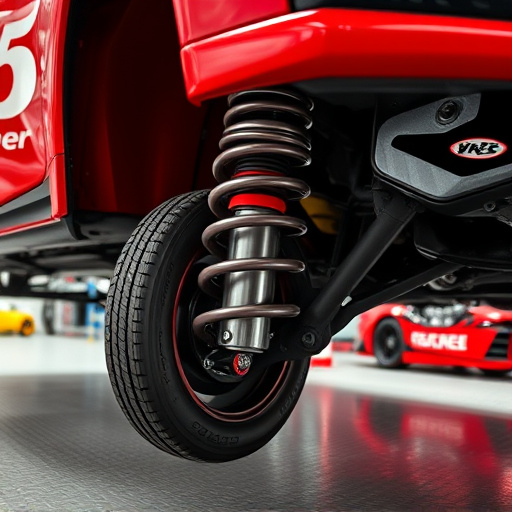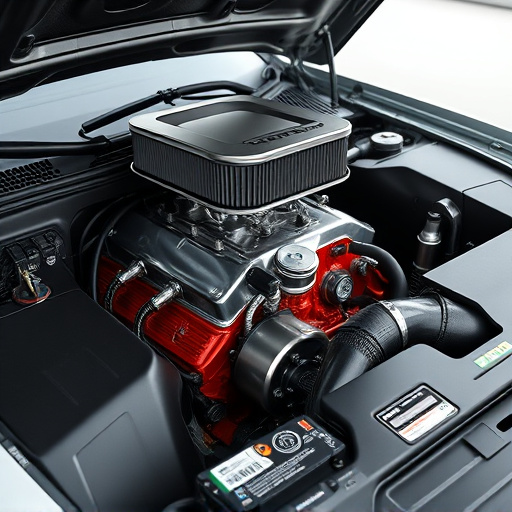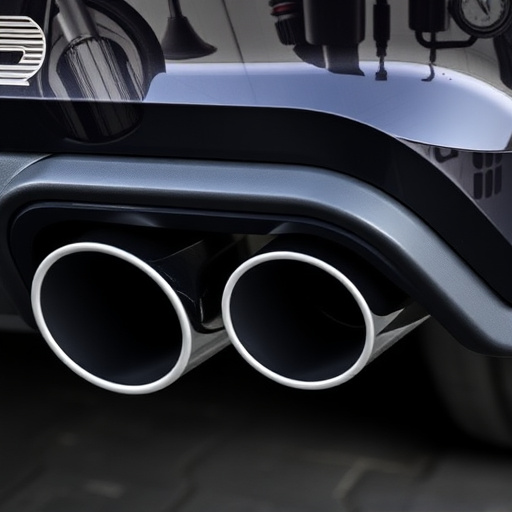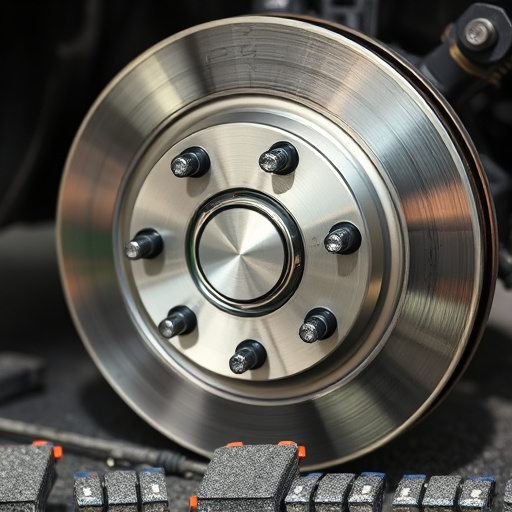Catalytic converters are essential for modern vehicles, reducing harmful emissions and boosting engine performance. Failure can occur due to various factors, leading to increased pollution and performance issues, especially in modified vehicles. Regular maintenance and timely replacement, considering cost vs. vehicle value, are crucial for optimal engine health. Major damage requires a catalytic converter replacement, offering cost savings and environmental benefits. Prompt attention to issues is vital to avoid blocked converters, ensuring efficient vehicle operation and emission compliance.
Deciding between catalytic converter replacement or repair is a crucial choice for vehicle owners facing exhaust system issues. This comprehensive guide explores the ins and outs of these decisions, starting with an understanding of catalytic converters and their role in your car’s performance. We delve into common failure modes, weighing the pros and cons of replacement, and evaluating repair options to ensure informed choices based on cost-effectiveness and long-term benefits.
- Understanding Catalytic Converters and Their Failure
- – What is a catalytic converter?
- – Its role in a vehicle's exhaust system
Understanding Catalytic Converters and Their Failure

Catalytic converters are essential components of modern vehicle exhaust systems. They play a crucial role in reducing harmful emissions and improving overall engine performance. These sophisticated devices work by facilitating a chemical reaction within their intricate beds, transforming toxic gases into less hazardous substances. However, over time, catalytic converters can fail due to various factors, such as exposure to extreme temperatures, fuel contamination, or damage caused by road debris.
When a catalytic converter fails, it can lead to noticeable performance issues and increased environmental impact. This is particularly evident in vehicles with modified intake components, like cold air intakes, which can accelerate the deterioration of the converter’s precious metal catalysts. Regular maintenance and timely replacement are key to ensuring optimal engine health and minimizing environmental pollution. Considering a catalytic converter replacement over repair becomes increasingly important when the cost of repairs exceeds the value of the vehicle or when significant damage is evident within the air intake systems.
– What is a catalytic converter?
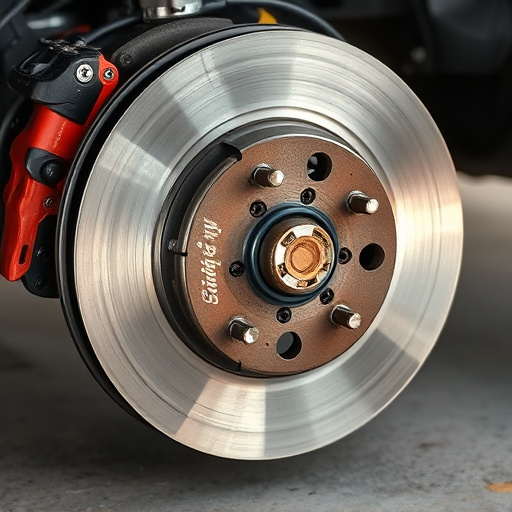
A catalytic converter is a critical component of modern vehicles’ exhaust systems, designed to reduce harmful emissions and improve air quality. It operates by facilitating a chemical reaction within its internal structure, which breaks down pollutants like carbon monoxide, nitrogen oxides, and unburned hydrocarbons into less toxic substances. This process plays a vital role in ensuring that vehicles meet environmental emission standards. Typically located between the engine and muffler tips, the catalytic converter is an integral part of a vehicle’s overall pollution control system.
When considering whether to replace or repair a faulty catalytic converter, understanding its function within the exhaust system is essential. Unlike brake components that wear out over time due to friction, the catalytic converter’s primary role is to catalyze chemical reactions, making it less susceptible to mechanical failures. However, factors like extreme temperatures, exposure to corrosive substances, and damage from road debris can impact its performance. In some cases, a simple repair might suffice, such as replacing the oxygen sensors or cleaning the catalyst itself. Yet, if the converter is severely damaged or has reached the end of its lifespan, catalytic converter replacement may be the more cost-effective and sustainable option, considering the potential long-term environmental benefits.
– Its role in a vehicle's exhaust system
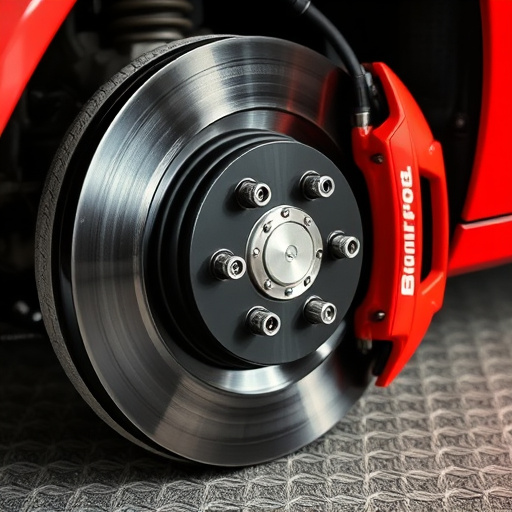
The catalytic converter is a vital component in a vehicle’s exhaust system, playing a crucial role in reducing harmful emissions and improving overall vehicle performance. Located between the engine and the muffler, this compact yet powerful device facilitates a chemical reaction that transforms toxic gases into less harmful substances, such as water vapor and carbon dioxide. This process not only contributes to cleaner air but also ensures your car runs efficiently and quietly.
When considering either a replacement or repair, understanding the converter’s function in the exhaust system is essential. Over time, this component can become clogged or damaged due to exposure to extreme temperatures, corrosive chemicals, and other environmental factors. A blocked catalytic converter can lead to reduced engine performance, increased emissions, and even failure of other exhaust components like the cat back exhaust or cold air intakes. Therefore, prompt attention to any potential issues is recommended, as repairing or replacing it early on can prevent more costly repairs down the line.
When deciding between catalytic converter replacement or repair, understanding the component’s critical role in your vehicle’s exhaust system is essential. While repairs can be cost-effective solutions for minor issues, replacing a catalytic converter is often recommended for vehicles with severe damage or performance degradation. Regular maintenance and timely intervention can extend the life of this vital exhaust component, ensuring optimal engine performance and environmental compliance. Consider consulting a professional mechanic to determine the best course of action for your specific needs, focusing on long-term efficiency and safety with catalytic converter replacement as a potential game-changer.








